Related Research Articles

Eric VIMenved was King of Denmark (1286–1319). A son of Eric V of Denmark and Agnes of Brandenburg, he became king in 1286 at age 12, when his father was murdered on 22 November by unknown assailants. On account of his age, his mother ruled for him until 1294.
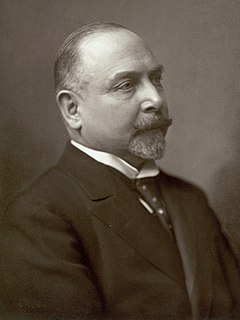
Carl Theodor Zahle, Danish lawyer and politician; prime minister of Denmark 1909–1910, 1913–1920. In 1895 he was elected member of the lower chamber of the Danish parliament (Folketinget), for the Liberal Party (Venstrereformpartiet). A campaigner for peace, in 1905 he co-founded the Social Liberal Party together with other disgruntled members of Venstrereformpartiet. He continued on as a member of the Folketinget for Det Radikale Venstre until 1928, when he became a member of the upper chamber of parliament (Landsting). In 1929 he became Justice Minister, a post which he held until 1935.

The National Film School of Denmark is an independent institution under the Danish Ministry of Cultural Affairs. It was established in 1966 and is based on Holmen in the harbour of Copenhagen.
Jan Mendoses was a European pirate or merchant who lived during the 17th century. It is possible that Jan Mendoses' real name was Juan [de] Mendoza. There is considerable doubt about his nationality, some sources claiming he was a Belgian named Mandaus, others that he was Spanish. He may even have been a merchant heading for Russia, rather than the "notorious pirate" claimed by Danish sources.

Danish literature, a subset of Scandinavian literature, stretches back to the Middle Ages. The earliest preserved texts from Denmark are runic inscriptions on memorial stones and other objects, some of which contain short poems in alliterative verse. In the late 12th century Saxo Grammaticus wrote Gesta Danorum. During the 16th century, the Lutheran Reformation came to Denmark. During this era, Christiern Pedersen translated the New Testament into Danish and Thomas Kingo composed hymns. Fine poetry was created in the early 17th century by Anders Arrebo (1587–1637). The challenges faced during Denmark's absolute monarchy in 1660 are chronicled in Jammersminde by Leonora Christina of the Blue Tower. Ludvig Holberg (1684–1754), influenced by the ideas of the Enlightenment and Humanism, is considered the founder of modern Danish and Norwegian literature. Neoclassical poetry, drama, and the essay flourished during the 18th century influenced by French and English trends. German influence is seen in the verse of the leading poets of the late 18th century such as Johannes Ewald and Jens Baggesen. Other 18th century writers include the hymn writer Hans Adolph Brorson and the satirical poet Johan Herman Wessel.
Christian Dorph is a Danish author. He has written several collections of poems as well as crime fiction.
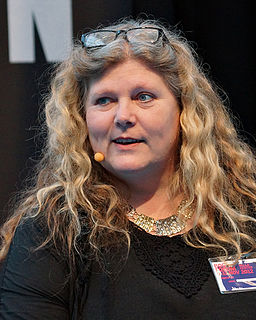
Lene Kaaberbøl is a Danish writer born in Copenhagen, Denmark. Her work primarily consists of children's fantasy series and crime fiction for adults. She received the Nordic Children's Book Prize in 2004. In 2009 Kaaberbøl with her co-author Agnete Friis was awarded the Harald Mogensen Prize by the Danish Criminal Academy for novel The boy in the suitcase.

Harald Viggo Moltke was a Danish painter, author and explorer. Among his activities Moltke, participated as draftsman in four Arctic expeditions.
Events from the year 1914 in Denmark.
Events from the year 1960 in Denmark.

Anton Laurids Johannes Dorph, usually known as Anton Dorph was a Danish painter who is remembered for his altarpieces and his paintings of fishermen.
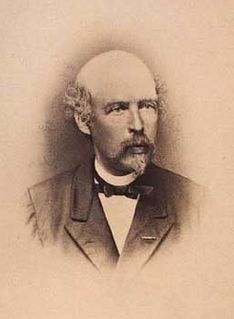
Rosenvinge is a Danish and Norwegian noble family.
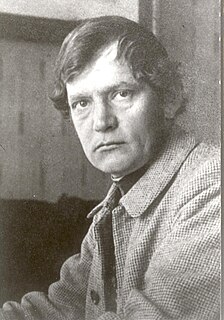
Harald Henrik Sager Kidde was a Danish writer and brother of the politician Aage Kidde. He is best known for the novel Helten, which is one of the key novels in Danish literature. Kidde died of Spanish flu in 1918. He was only 40 years old at the time. There is an extensive Kidde-archive at Vejle Town Archive.
Helten is a novel by the Danish author Harald Kidde (1878-1918) and is his most important work. It is also generally considered by experts to be among the most important works of 20th century Danish literature. The novel is translated into French, German, Norwegian and Vietnamese. The protagonist is the teacher Clemens Bek on the remote island of Anholt. He is a true Christian in a world of hypocrites – a hero of the faith.
Elsebeth Egholm is a Danish journalist and best-selling author who writes mainly crime fiction novels. She is known internationally as the creator of the television series Those Who Kill.
The 20th Robert Awards ceremony was held in 2003 in Copenhagen, Denmark. Organized by the Danish Film Academy, the awards honoured the best in Danish and foreign film of 2002.
Morten Piil was a Danish writer and film critic. He received a Bodil Honorary Award in 2002 for his "long-standing contribution to Danish film literature".
Events from the year 1631 in Denmark.
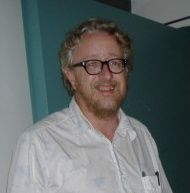
Frederik Stjernfelt is a Danish professor and writer. As a professor, he lectures in science studies, history of ideas, and semiotics, at Aalborg University’s Copenhagen department.
The Harald Mogensen Prize is a Danish literary award for detective novels awarded by the Danish Criminal Academy. It was founded in 2006 and was first awarded in 2007. It is named after Danish author, editor, journalist and critic Harald Mogensen who was awarded The Danish Criminal Academy diploma in 1993.
References
- ↑ "Gyldendal presseservice - Simon Pasternak modtager Harald Mogensen-prisen for Bedste danske spændingsroman 2013". presse.gyldendal.dk. Retrieved 2020-08-11.